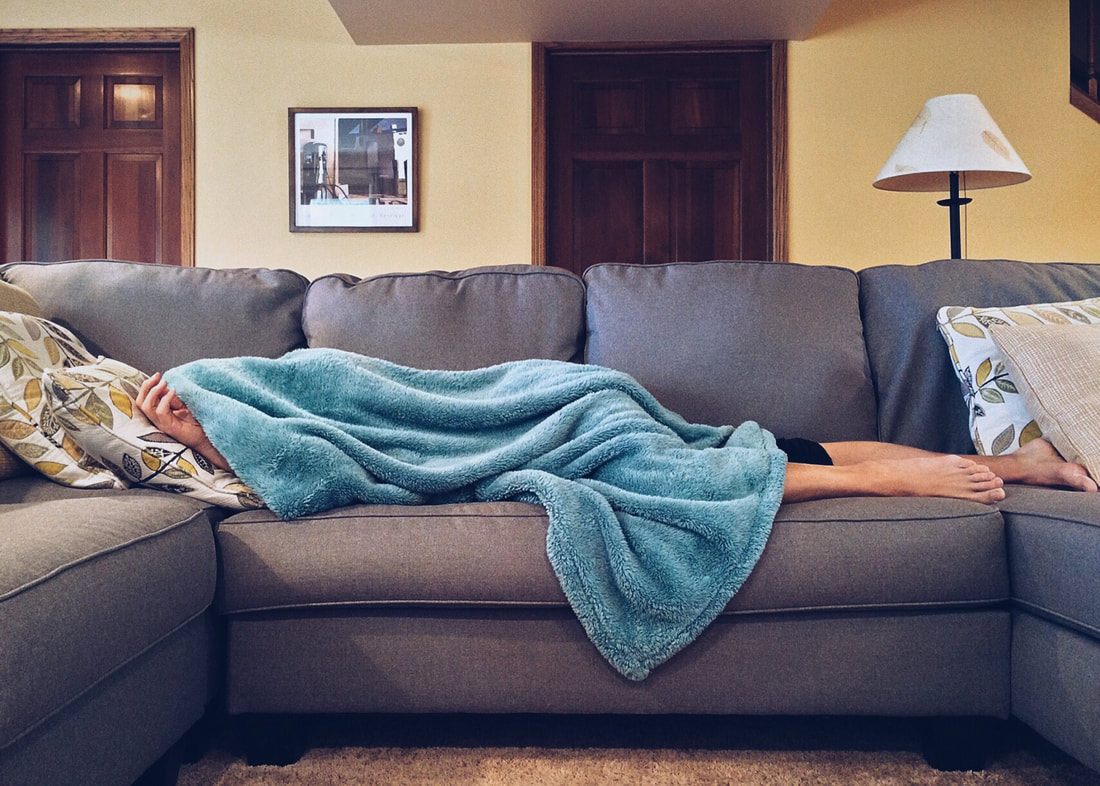|
No matter what the reason is, it can be hard to decide to put yourself first.  Why is it so hard to take a sick day?
For some, it’s choosing between staying home and getting better or earning money to pay bills. Others struggle with the guilt of not keeping up with their work responsibilities or having to rely on coworkers to take on more in their absence. Financial Stress Challenges with taking time off increase with financial instability. For some, a single sick-day in a two-week pay period means a 10% loss on their pay. This can be devastating for so many who are living paycheque to paycheque due to the ever-increasing cost of rent, loan payments, student debt, transportation, and groceries. Responsibilities at Work Many employees, including front-line healthcare workers and support staff, know that by taking time off work, their coworkers have to take on more in their absence. Being away can inspire feelings of fear about how clients, customers, and coworkers will be impacted (e.g., what if something happens and I’m not there to help? What if they resent me for not showing up?), and whether there will be any repercussions as a result. Self-Image If you have a strong work ethic and derive satisfaction from your work, taking time off just to be sick can feel less important than showing up. For some, it can feel “weak” or self-indulgent rather than necessary. Since many of us define our value based on our work, we may unfairly punish ourselves with guilt and shame if we take the time off. Repercussions Some people also don’t want to take sick days because it may make them appear weak or unreliable to others. This is especially true when you are first starting a job. You don’t want your boss to think that you’re slacking. Some people may also not want to let people see that a cold can stop them from coming to work. While you may be afraid of being seen as somebody who is just skipping work or that can’t handle catching a cold, that will most likely not be the case. People, even bosses, understand that people get sick; after all, they’re human too. And taking a sick day does not make you look weak; it makes you look like you are taking care of yourself, which is a good example to set. The Scarcity Mindset Another reason we may avoid taking sick days is that we have a limited number and believe we’ll need them more later on. Sure, you may have a nasty cold, but what if you get the stomach flu next month? What if something unexpected happens to your health and you need your sick days? What if your child is sick and you need to stay home to care for them? We think that what we are feeling is bad, but not as bad as something that could happen. The truth is, you never know. That could be the case. However, if you don’t take a sick day, then you run the risk of making yourself worse and possibly having to take more sick days in the end, because you made the illness worse by not resting. No matter what the reason is, it can be hard to decide to put yourself first. During my practicum in university, I had a supervisor that would make us take a sick day. Even if we went the whole placement without being sick, we still had to take one. The reason why he did this was to teach an important lesson; that the place can still run without you. Reality check. Your workplace won’t come crashing down if you take a sick day. Most of the time, you can make up the work, or somebody can take your shift. While you may feel guilty, if you were to ask your co-workers, most of them would probably say that they would rather you stay at home with your germs! Turn the situation around. How do you feel when you see a co-worker who is sick? Are you afraid of catching what they have? Do you want them to stay far away from you? They will probably feel the same way about you! It’s also hard to give your best to your clients and patients when you’re sick, and most of them would understand you taking time to recover. Here are the main reasons you SHOULD take a sick day:
“In a culture that values work, how often do we fail to tell ourselves we need to rest and heal” - Unknown |
|
OverviewNWO’s source for all things relationships, mental health, wellness, lifestyle, and pandemic support. Kelly Magazine is a mental health outreach initiative created by Kelly Mental Health and supported by Kelly Mental Health Foundation, a non-profit organization dedicated to improving the community in the area of mental health.
|
Magazine |
Follow Us |
In support of @kellymentalhealthfndn |
© COPYRIGHT. ALL RIGHTS RESERVED. WEB DESIGN BY KMH




